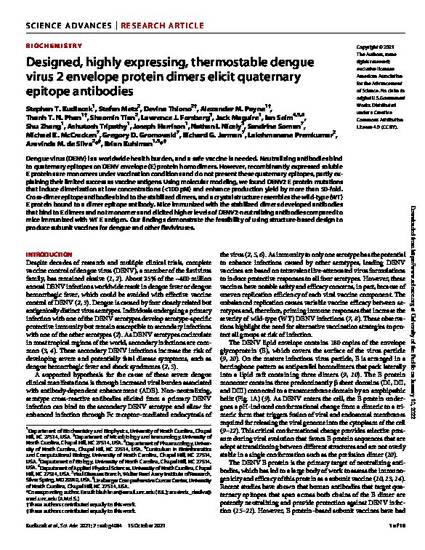
Dengue virus (DENV) is a worldwide health burden, and a safe vaccine is needed. Neutralizing antibodies bind to quaternary epitopes on DENV envelope (E) protein homodimers. However, recombinantly expressed soluble E proteins are monomers under vaccination conditions and do not present these quaternary epitopes, partly explaining their limited success as vaccine antigens. Using molecular modeling, we found DENV2 E protein mutations that induce dimerization at low concentrations (<100 pM) and enhance production yield by more than 50-fold. Cross-dimer epitope antibodies bind to the stabilized dimers, and a crystal structure resembles the wild-type (WT) E protein bound to a dimer epitope antibody. Mice immunized with the stabilized dimers developed antibodies that bind to E dimers and not monomers and elicited higher levels of DENV2-neutralizing antibodies compared to mice immunized with WT E antigen. Our findings demonstrate the feasibility of using structure-based design to produce subunit vaccines for dengue and other flaviviruses.
Available at: http://works.bepress.com/joseph-harrison/40/
